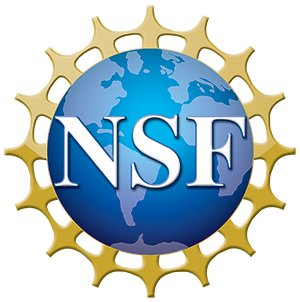WSSU awarded $300K EPIIC grant to strengthen STEM workforce development
Winston-Salem State University was awarded a $370,000 grant to better prepare students for STEM jobs. The award is a part of the U.S. National Science Foundation’s Enabling Partnerships to Increase Innovation Capacity (EPIIC) program, which announced an investment of nearly $19 million to 48 awardees at U.S. institutions of higher education, including historically Black colleges and universities (HBCUs), minority-serving institutions (MSIs), primarily undergraduate institutions (PUIs), and community and technical colleges.
WSSU’s project, led by Dr. Fenghai Guo, WSSU chemistry professor and grant principal investigator, will collaborate with North Arkansas College, Middle Georgia State University and St. Vincent College to increase innovation capacity at each institution by growing external and internal partnerships, establishing a more inclusive research/innovation ecosystem, and broadening the participation of a skilled, diverse workforce as part of the research enterprise nationally.

The SUPER (Strategic University Practices to Expand Research) Partnerships Collaborative, made up of MSIs, PUIs and two-year institutions, will provide a unique opportunity for cohort institutions in terms of best practices in external partnerships building and STEM workforce development.
Through this EPIIC project, the cohort will build partnerships with industry experts and government agencies to find out what skills and knowledge are needed for STEM jobs in their fields. The cohort will use this information to modify and enhance educational experience for undergraduates with industry needs in mind, so students are prepared for jobs in STEM fields.
Cohort institutions will work together to grow industry partnerships, improve alignment of program curricula with the need of industry partners, and enhance student educational experiences. The proposed capacity-building efforts will also provide significant innovation partnership opportunities among cohort members to allow future participation in an NSF Engine and other funding opportunities.
“Through the leadership of Dr. Fenghai Guo in the Department of Chemistry, this is a tremendous opportunity for WSSU to showcase its talented faculty,” said Dr. Shawn E. Holt, associate provost for Research & Innovation and a co-principal investigator on the grant. “Dr. Guo and his team are leading three other institutions in an effort to grow external, research-related partnerships to increase workforce development in STEM, and support from NSF will jumpstart the process.”
Other co-principal investigators on the grant were Jafar Gharavi-Naeini, chemistry professor; Chad Markert, associate professor of exercise science; and Tangela Towns, assistant professor of behavioral sciences.
EPIIC awardees will receive support to develop capacity and institutional knowledge to help them build new partnerships, secure future external funding and tap into their regional innovation ecosystems – potentially into an NSF Regional Innovation Engine (NSF Engine), NSF Engine Development Awardee, and/or a U.S. Economic Development Administration Regional Technology and Innovation Hub (EDA Tech Hub).
“NSF is committed to catalyzing and empowering all Americans to participate in the nation’s research and innovation enterprise,” said Erwin Gianchandani, NSF assistant director for Technology, Innovation and Partnerships (TIP). “This starts with creating pathways for the full range of institutions of higher education, nonprofits, state and local governments, tribal nations and private industry to engage in their regional innovation ecosystems. The EPIIC awards build upon previous efforts to connect diverse partners to develop inclusive innovation ecosystems and work together to accelerate key technologies and address pressing national, societal and geostrategic challenges all across the U.S.”
Launched by the TIP Directorate, EPIIC works with institutions interested in growing external partnerships and building innovation capacity. NSF recognizes that many institutions, including HBCUs, MSIs, small academic institutions and two-year institutions, stand to benefit from additional focused support for the infrastructure and resources needed to grow external partnerships and to tap into innovation ecosystems, including engaging with NSF Engines, NSF Engine Development Awards, and EDA Tech Hubs.
The full award list can be found on NSF's award search webpage.
About EPIIC: EPIIC program provides institutions with training and networking support to develop the capacity and institutional knowledge needed to help build more inclusive ecosystems and enable participation in regional innovation ecosystems, potentially connecting to NSF Engines. Learn more about EPIIC.
